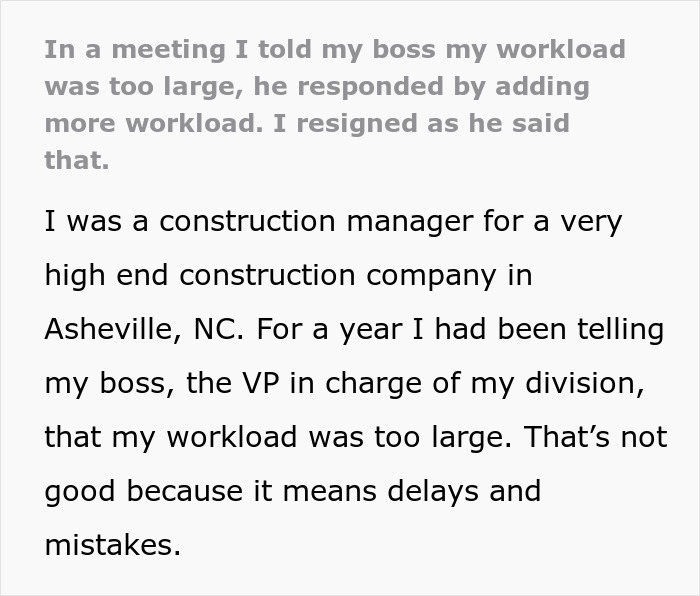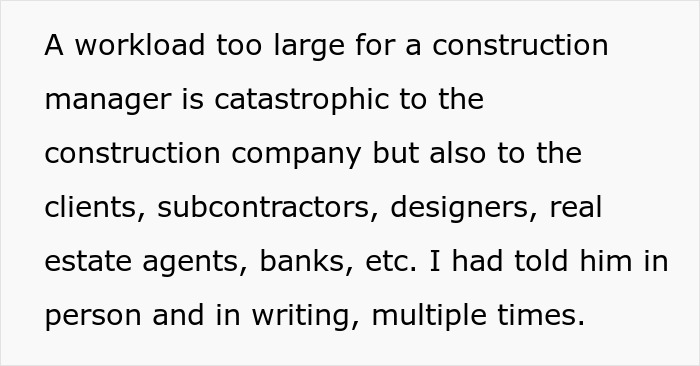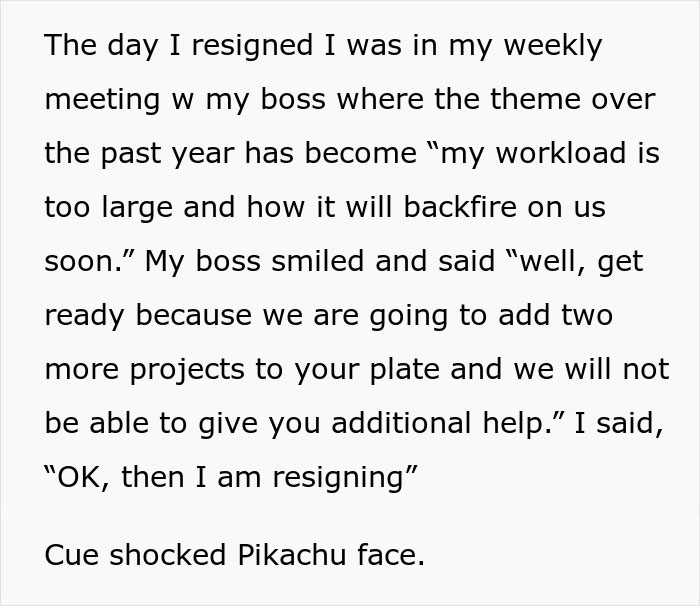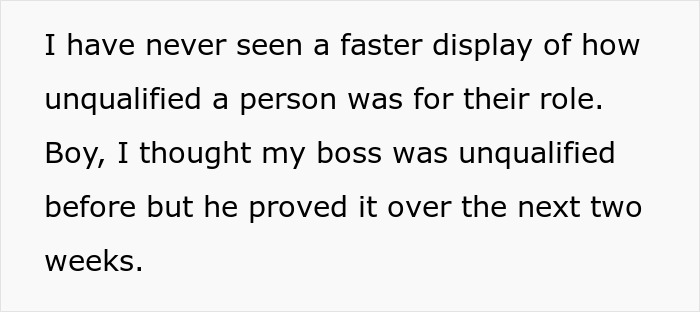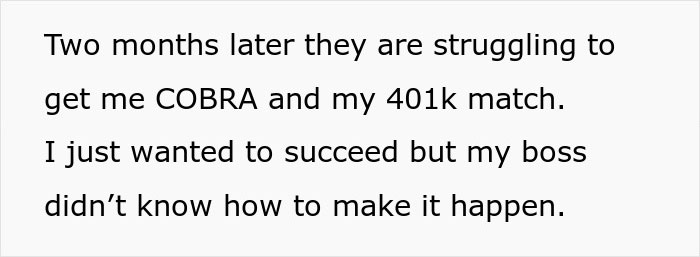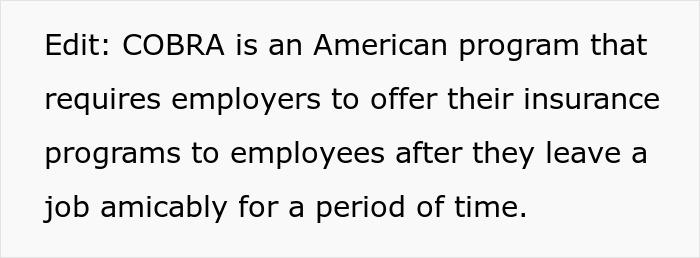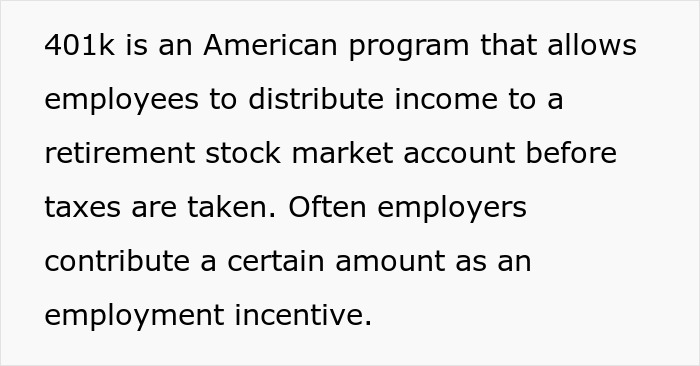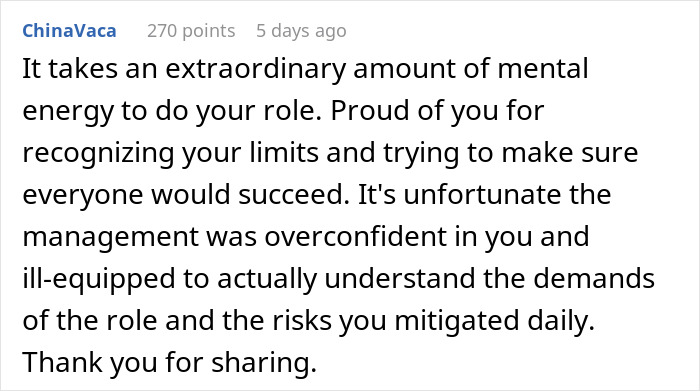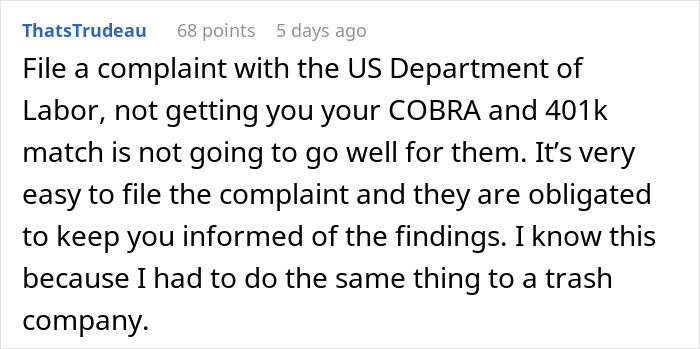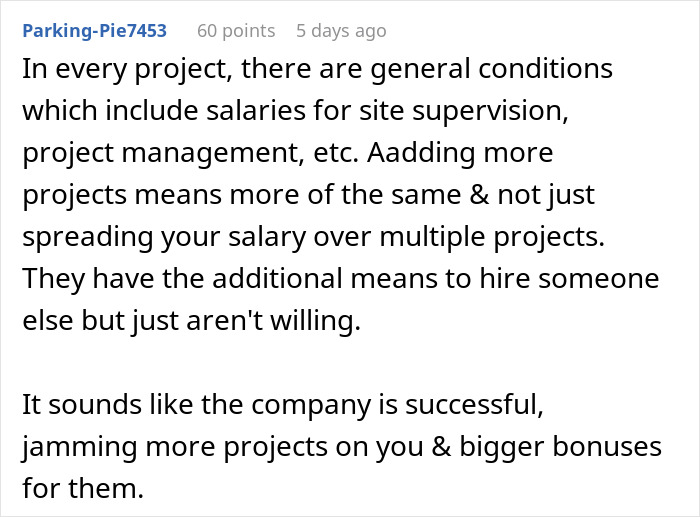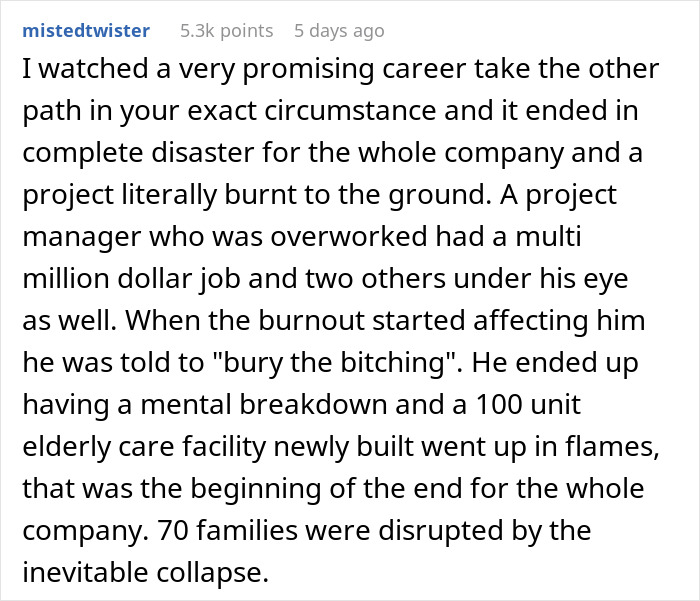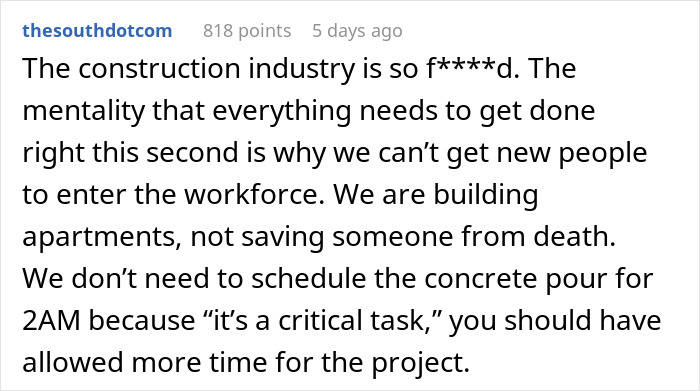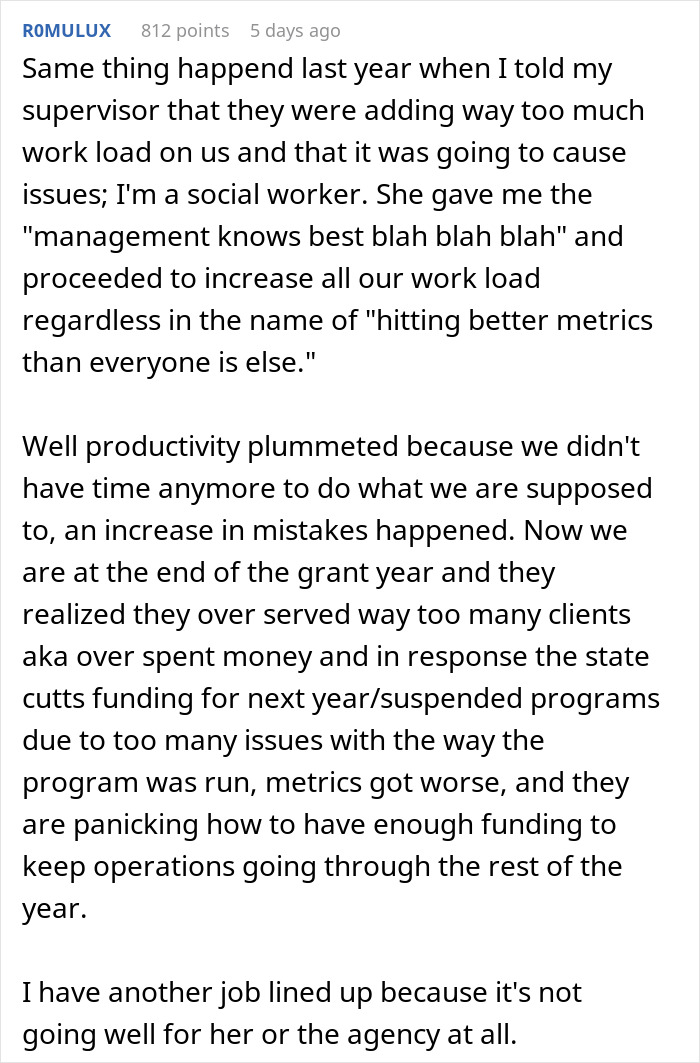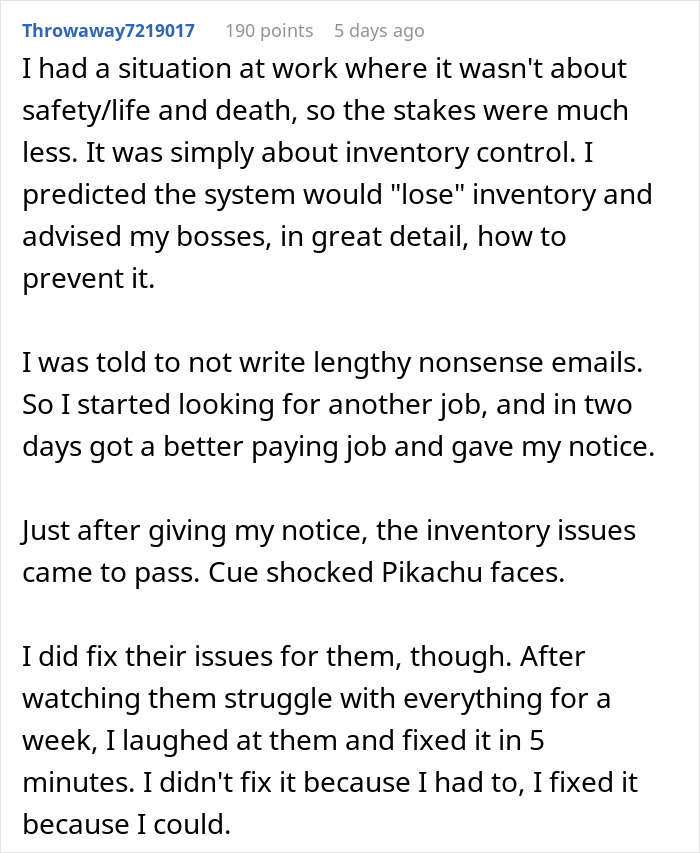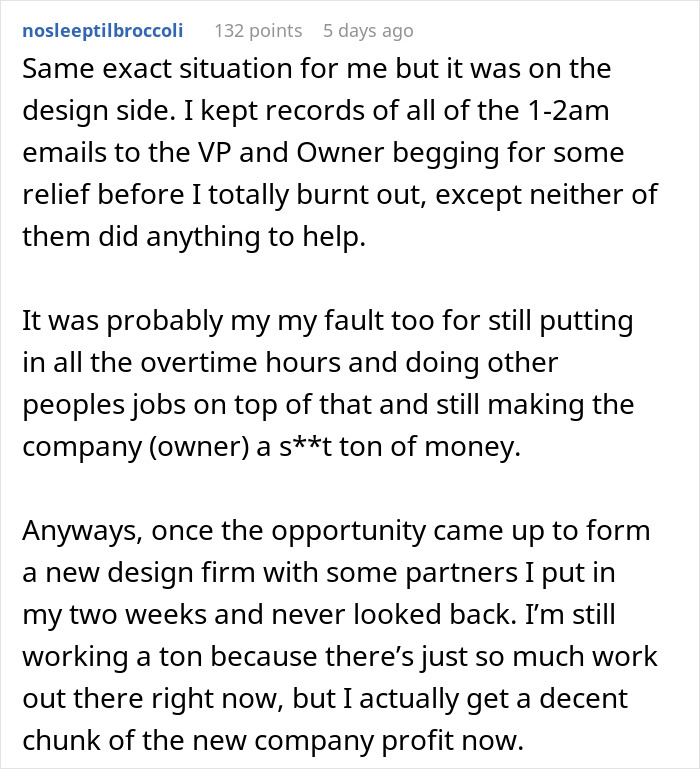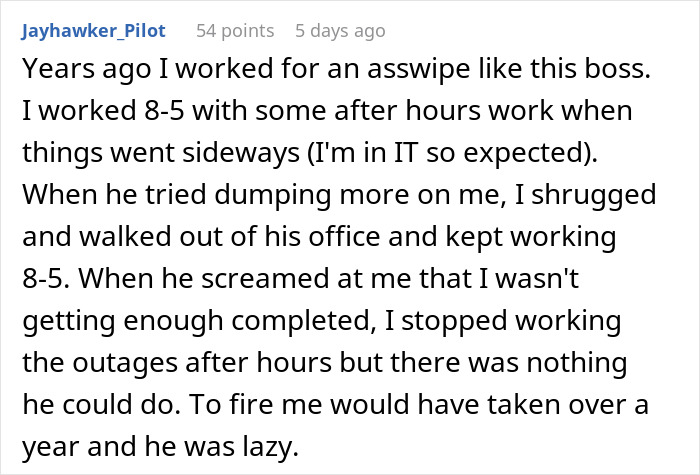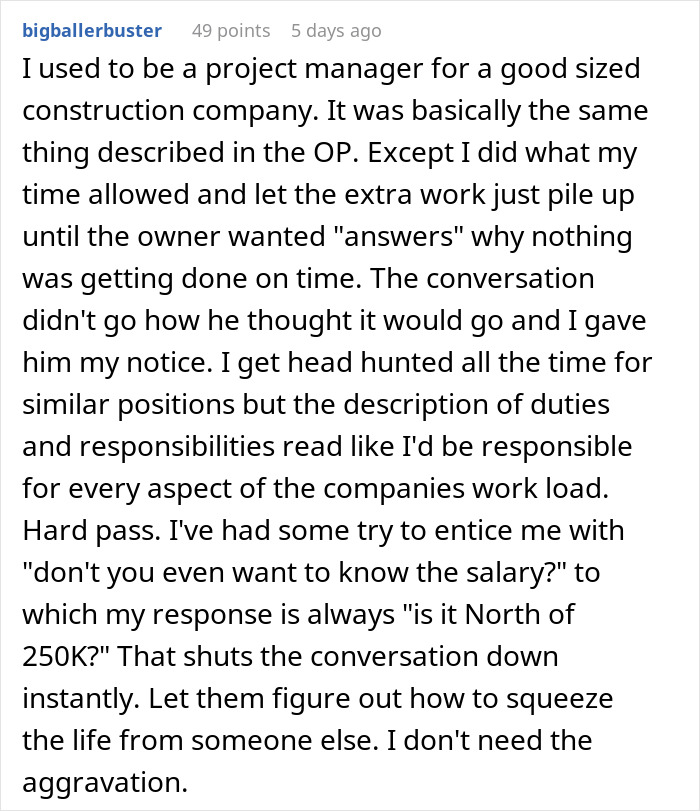Whatever your experience with work might be, it’s likely that every one of us has been burdened with an excessive workload and unrealistic expectations at some point. It doesn’t matter how you spin it or how much it pays, being overworked is not worth it. This has been such a prevalent issue in Japan that it even got its own name: karoshi. And if you think this is where that talk with your manager comes in, you’d be right. Except, some of them don’t listen and pay attention only after it’s too late.
As construction manager u/Willbily recalled in his recent r/antiwork story, which garnered more than 18,000 upvotes, the stress and fatigue of being overworked nagged him for an entire year. Not once did he try to explain this to his superiors but heard out he was not. Finally, when his manager actually listened, it was not an apology that awaited him but a response that made the company lose one of its more valuable employees faster than you could utter “we’re sorry.”
This person’s superiors ignored his pleas about an unbalanced workload for an entire year
Image credits: Tima Miroshnichenko (not the actual photo)
When one of them actually listened, the response was so backward that there was no way the conversation could’ve ended any other way
Image credits: The Coach Space (not the actual photo)
Image credits: u/Willbily (not the actual photo)
Part of the issue lies in the romanticization of overwork and the factors that perpetuate it
It’s hard to pinpoint exactly when did this shift happen, but the romanticization of work – sometimes even to the point of being called a ‘cult‘ – is not a particularly new phenomenon. It’s always been believed that the harder you’ll work, the further up the ladder you’ll get. According to one research by a former Goldman Sachs employee, now a faculty member at the University of Pennsylvania, individuals in two major investment banks worked as much as 120 hours per week (or three times more than the law required).
It might just be that Wall Street brokers adopted their devotion to work from Japan. As one study found, nearly 25% of Japanese companies required employees to work more than 80 hours of overtime a month, which was often unpaid. Thus the infamous Japan’s work epidemic that was responsible for many broken spirits.
Each to his own, as they say. Work yourself to the ground if you like. But if your hunger for success depends on other people, this, then, can become a big problem. As it did, of course, creating a domino effect. According to a recent study conducted by Microsoft, approximately 50% of the employees, as well as more than half of the managers, are experiencing burnout in their workplaces. Take a moment to consider just how big of a number that is.
Part of the problem, Dr. Gleb Tsipursky, the CEO of the hybrid work consultancy Disaster Avoidance Experts, thinks lies in the superior’s inability to listen. It would help if managers were better suited to “analyze the situation and workload to determine if the complaint is justified,” he told Bored Panda in an email. To make a case in point, The Workforce Institute at UKG conducted research which found that 4-in-5 think they aren’t heard ‘fairly or equally’ at work. It’s not particularly surprising, then, that a whopping 41% have left a job because they didn’t feel listened to.
Even though it has been established (by science, nonetheless) for some time that excessive work hours lead to decreased productivity and lower-quality output, it’s perplexing to hear that the culture of overwork persists. Dr. Gleb has a simple explanation: money. “Companies may prioritize profits and productivity over employee well-being, tolerating poor management as long as targets are met,” Tsipursky argued, mentioning the so-called ‘Peter Principle’.
‘Peter Principle’ states that more often than not people tend to be promoted to a level above their competence, primarily based on “performance in their current role, not their ability to perform in a managerial position,” Tsipursky explained. And if u/Willbily’s story didn’t put a fine point on it, hear this out: according to a survey conducted by CareerBuilder.com in 2019, an astonishing 58% of superiors reported that they did not undergo any management training. Unfortunately, we can’t say we’re that surprised at this point.
People had many questions for the author and applauded his way of teaching ignorant superiors a lesson
Some readers also shared similar stories
The post “He Responded By Adding More Workload”: Tired And Overworked Employee Quits After Boss Wants To Give Him 2 More Projects first appeared on Bored Panda.
Go to Source
Author: Ilona Baliūnaitė

